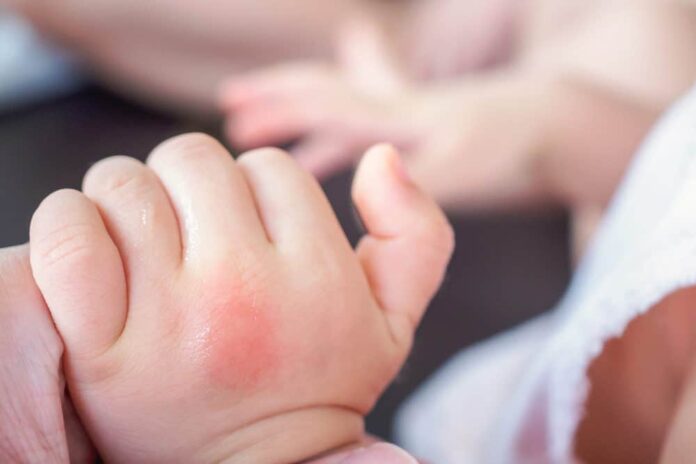
Protecting Your Little One: How to Identify and Treat Bed Bug Bites on Babies
As a parent, your baby’s safety and well-being are of utmost importance. While you may take every precaution to create a clean and comfortable environment for your little one, there is one tiny nuisance that could disrupt their peace and comfort: bed bugs. These tiny creatures can infest your home and leave your baby vulnerable to their bites. In this article, we will explore how to identify and treat bed bug bites on babies effectively.
Identifying Bed Bug Bites on Babies:
Bed bug bites can cause discomfort, itchiness, and even allergic reactions in some cases. However, identifying these bites on babies can be challenging since they may not be able to communicate their discomfort verbally. Here are some signs to look out for:
1. Red, itchy bumps: Bed bug bites often appear as small, red, swollen bumps on the baby’s skin. These bumps may also be accompanied by a slight blister-like center.
2. Clusters: Bed bug bites often occur in clusters or lines, as the bugs tend to bite multiple times in a concentrated area.
3. Bite patterns: Look for bite patterns in areas typically exposed during sleep, such as the face, neck, arms, and legs. These pests tend to bite in areas where the skin is exposed and easily accessible.
Treating Bed Bug Bites on Babies:
If you suspect your baby has been bitten by bed bugs, it’s important to address the issue promptly to prevent further discomfort and prevent the infestation from spreading. Here are some tips for treating bed bug bites on babies:
1. Clean the affected area: Gently clean the affected area with mild soap and lukewarm water. Avoid using any harsh chemicals or irritants that could further aggravate the skin.
2. Apply a cold compress: To alleviate itching and reduce swelling, apply a cold compress to the affected area for a few minutes at a time. This will provide temporary relief and help prevent scratching.
3. Use over-the-counter creams: Over-the-counter anti-itch creams containing hydrocortisone or calamine lotion can offer relief from the itching associated with bed bug bites. However, it’s essential to consult your pediatrician before using any medication on your baby.
4. Trim your baby’s nails: To minimize the risk of secondary infections from scratching, regularly trim your baby’s nails and keep them clean. Consider using soft mittens or socks to prevent scratching during sleep.
Preventing Bed Bug Infestations:
Prevention is key when it comes to bed bugs. Here are some steps you can take to protect your baby and prevent bed bug infestations:
1. Regularly inspect your home: Conduct regular inspections of your baby’s crib, mattress, and surrounding areas to ensure no bed bugs are present. Look for signs like dark brown spots, shed skins, or live bugs.
2. Vacuum and clean: Regularly vacuum your baby’s room, paying close attention to cracks, crevices, and areas where bed bugs may hide. Dispose of the vacuum bag properly to prevent re-infestation.
3. Use mattress and crib encasements: Consider using mattress and crib encasements designed specifically to prevent bed bugs. These will create a barrier between the bugs and your baby’s sleeping area.
4. Be cautious when traveling: Bed bugs can hitch a ride on luggage or clothing. When staying in hotels or other accommodations, be sure to inspect the room thoroughly before settling. Avoid placing your baby directly on hotel bedding and use a protective barrier like a clean sheet or portable crib.
Conclusion:
Bed bug bites can be distressing for both you and your baby, but with careful attention to prevention and prompt treatment, you can ensure their safety and comfort. By identifying the signs of bed bug bites on babies and taking preventive measures to keep these pests at bay, you can create a secure environment for your little one to grow and thrive. Remember to consult with your pediatrician if you have any concerns about your baby’s health or if severe reactions occur.

















